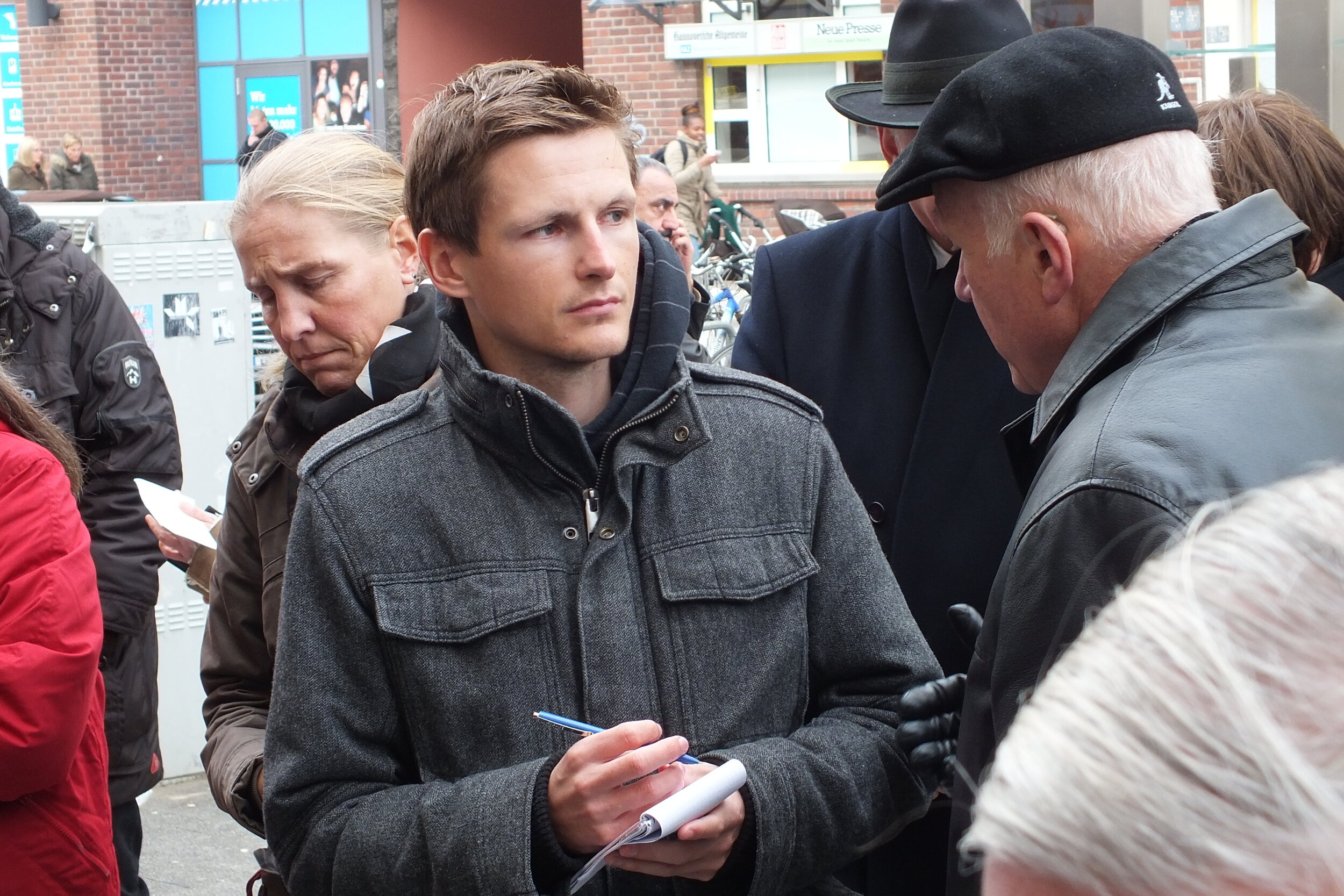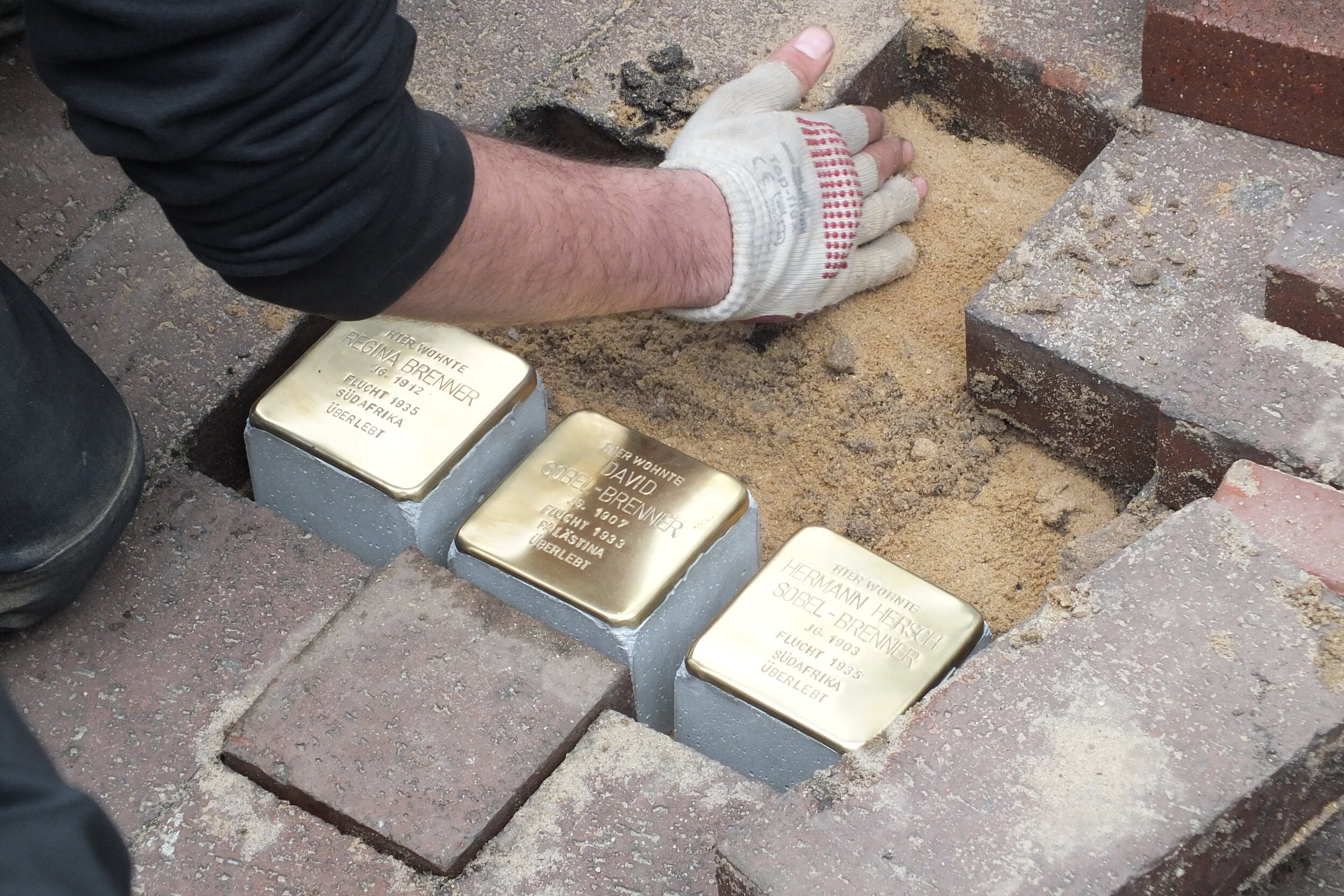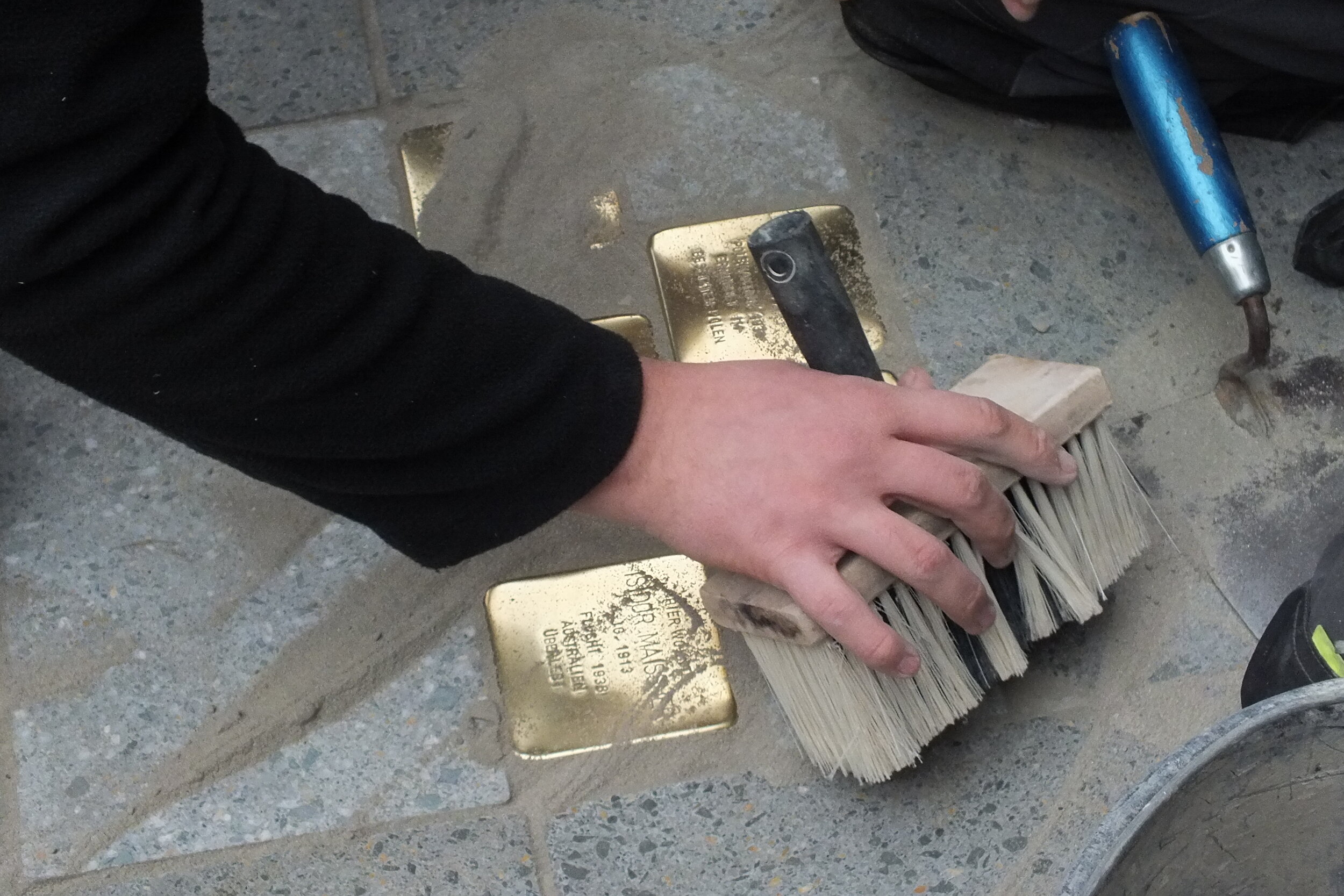
Beny Maissner
WHAT DO YOU WANT PEOPLE TO LEARN?
And the students actually, were the one who put the stones down and the stones were already the holes in the ground were already, already dug and you just put it. And there was a whole ceremony. And then there's a big monument where I spoke to them and it was like a lot of people, local people. And I said, in German, of course my broken German, we didn't come to forget or forgive, but we came to warn you about fascism and, and terrorism, you know, and the mayor of the city spoke very beautiful. Then we went to the place where the synagogue stood. It was around the Kristallnacht, the nine or tenth of November...
I don't know if it's a reconciliation about the tragedies and the horror, the horrific. And I said, how can I, how can we forgive? And how can we, you know … but we have bigger enemies today, and reconciliation is very important. And the history of antisemitism of course, is deeply founded in this cycle of Christianity because we are supposed to have killed Christ. So where it's local a lot of the time it was also because we were a minority and we were powerless and we were not allowed to do certain jobs or skills and in the early days. But I think antisemitism today is antizionist and, anti-Israel. So the antisemitism is expressed by, by anti-Israel. I don't think that because Hasidic Jews are dressed in a way that are dressed, which is different from the rest of the people, is anything different than the Sikhs or the Muslims. So it's not a, it's not a dress that is offensive to, you know, the community, but antisemitism is because of a global, inherited concept…







